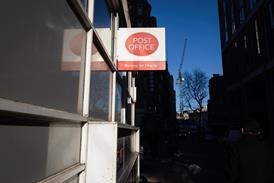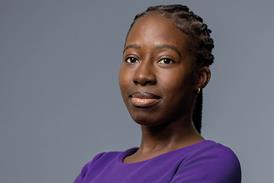I recently attended the Pathways to Law Annual Conference, held this year at Warwick University, which proved to be an inspiring and hugely enjoyable occasion.
Pathways to Law has been established by the College of Law and the Sutton Trust to provide opportunities for talented students from state schools in England, who are interested in a career in the law, and will be the first within their families to attend university. It is supported by the Law Society, and several universities and law firms.
The 200 or so students attending the conference were split into teams of about 20, given a briefing on a legal topic of some complexity and told to put on a 10-minute presentation to the entire group, accompanied by a hand-out. This they achieved with some distinction, demonstrating skills of analysis and exposition (not to mention acting, direction, sound, lighting and design) of a high order.
My task as one of the judges to choose a winning team was by no means easy, and I had no difficulty in encouraging them all to aspire to a legal career.
The Warwick conference provided a salutary reminder of the importance of ensuring that the legal profession remains open to all who have the necessary ability and ambition, irrespective of their social background. Two years ago Alan Milburn’s study, British Professions Today: The State of the Sector, concluded that top professions such as law are increasingly closed off to all but the most affluent families.
His report found that the typical lawyer of the future will have come from a family in the top sixth in our society in terms of affluence. While the Milburn Report is itself of sufficient concern, we have yet to see the impact of the rise in university tuition fees on access to the legal profession. I think we can safely conclude that these higher fees will deter some (perhaps many) gifted and able students from financially or socially disadvantaged backgrounds from trying to enter the profession.
There is therefore a big task ahead of us and I am personally committed to doing what I can during my presidential year to enhance the diversity of our profession and to ensure fair access to it by those from all social backgrounds.
Social mobility is undoubtedly a complicated issue and it is not within the power of the legal profession to overcome the unfair disadvantages that affect those from less affluent backgrounds.
The Law Society and the legal profession are, however, in a position to promote and support interventions at a profession-wide, firm and individual level to ensure that the brightest and best students can become solicitors if they wish. Many firms are, for example, engaged in outstanding work with students from the least advantaged sectors of their local communities.
The Solicitors Regulation Authority, the Bar Standards Board and the Institute of Legal Executives (ILEX) are currently embarking on a fundamental review of legal education in England and Wales.
At the same time the Society will be undertaking its own research to develop our own thoughts and proposals around what the profession and our clients need from the solicitors of the future and how education and training should support those needs. I support innovative and alternative routes to qualification by legal educators.
I welcome any move by providers to lower the cost of legal education, thereby attracting the best students from all backgrounds. In light of the recent changes to higher education funding, I would encourage providers to look at ways to make the Qualifying Law Degree and LPC more affordable, while maintaining high teaching standards.
We need to be clear, however, that once aspirations have been raised and investment made in helping talented students through university, those people do not remain financially barred from the profession. This is why the Law Society’s Diversity Access Scheme (DAS) is so important.
The exceptional thing about the DAS is that it addresses circumstances of socio-economic disadvantage head-on by providing professional contacts, confidence-building, networking and CV-enhancing opportunities and, crucially, finance. It is also unique in being able to address the multiple disadvantages that so often accompany economic deprivation.
Many of the applicants to the scheme are not only in a position of financial disadvantage, unable to finance their legal education, but also face a range of social, educational and health problems.
Those individuals who are successful under the scheme are all able to demonstrate ability and aptitude for a career as a solicitor – as well as the most extraordinary courage and tenacity in pursuing their ambition.
The DAS has supported 84 exceptional students to date. I will be promoting the DAS strongly during my year of office and will also focus on ensuring that action in support of fair and diverse access to the profession is coordinated, so that we can avoid duplication and identify gaps which need addressing.
I welcome the formal recognition by the Legal Services Board of socio-economic background as a strand of diversity in their monitoring guidance. This is something that the Law Society has called for since we made our first submission to the Milburn panel two years ago.
We have always been clear that standardisation of indicators would be necessary in order to effectively monitor policies and practices aimed at widening access for those from disadvantaged backgrounds, if the profession hoped to replicate the success it has seen in reaching a more equitable gender and ethnic balance.
Those law firms that are already signatories to the Law Society Diversity and Inclusion Charter (representing one-third of all solicitors in private practice) will be in a strong position to comply with the LSB’s guidance, when it is implemented by the SRA, as they already have an existing commitment to the pursuit of best practice and established processes for diversity monitoring. Signing up to the charter is free of charge and is accompanied by a range of tools and resources for embedding good practice on all aspects of inclusion.
I hope that during my year I will see even more of the profession seizing the opportunity and joining the charter.
I find it unsupportable that the talented young people I met at the Pathways to Law conference might not, for lack of means, be able to pursue a career in the law. I hope that readers of this column will share my view that fair access to the profession is one of the key challenges we face today.
John Wotton is president of the Law Society

























No comments yet